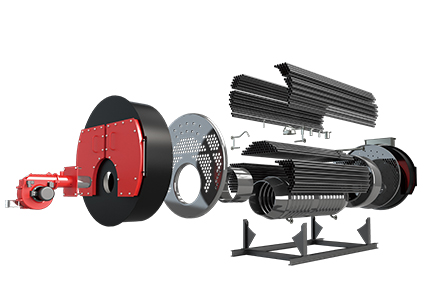Thermal Oil Boiler Manufacturers Utilizing Waste Heat for Efficient Energy Solutions
Waste Heat Thermal Oil Boiler Manufacturers A Sustainable Solution
In today's increasingly eco-conscious world, the need for efficient energy solutions is paramount. Among innovative technologies, waste heat thermal oil boilers have become a focal point in the energy sector for their potential to harness and utilize waste heat. This article explores the significance, advantages, and impact of waste heat thermal oil boiler manufacturers in promoting sustainable energy practices.
What Are Waste Heat Thermal Oil Boilers?
Waste heat thermal oil boilers are specialized systems designed to recover heat from industrial processes that would otherwise be released into the environment. These boilers use thermal oil as a heat transfer medium, which allows them to operate at higher temperatures than conventional water boilers. By utilizing waste heat, these systems minimize energy loss and reduce overall energy consumption in various applications, from manufacturing to power generation.
The Importance of Waste Heat Recovery
The importance of waste heat recovery cannot be overstated. Industries, such as cement, steel, and chemical manufacturing, produce vast amounts of waste heat during their operations. According to estimates, a significant portion of energy used in industrial processes is lost as waste heat, highlighting an opportunity for optimization. Waste heat thermal oil boilers capture this heat, converting it into usable thermal energy. This not only enhances energy efficiency but also helps reduce greenhouse gas emissions.
Benefits of Waste Heat Thermal Oil Boilers
1. Energy Efficiency Waste heat thermal oil boilers can drastically improve the overall energy efficiency of a facility. By capturing and reusing waste heat, industries can reduce their reliance on fossil fuels and lower operational costs significantly.
2. Versatility These boilers are versatile and can be used in various sectors, including food processing, oil refining, and petrochemicals. Their ability to operate at high temperatures allows them to serve diverse thermal energy needs.
3. Environmental Benefits By utilizing waste heat, these systems contribute to reduced carbon footprints. Companies that adopt waste heat thermal oil boilers showcase their commitment to sustainability, enhancing their corporate social responsibility (CSR) profiles and appealing to environmentally conscious consumers.
4. Cost Savings Initial investments in waste heat thermal oil boiler systems can lead to substantial cost savings in the long run. By minimizing fuel consumption and energy waste, businesses can achieve quicker payback periods and increased profit margins.
waste heat thermal oil boiler manufacturer

5. Regulatory Compliance As governments worldwide introduce stricter regulations on emissions and energy consumption, adopting waste heat recovery technologies can help industries comply with these mandates more easily.
Future Outlook
The market for waste heat thermal oil boilers continues to expand as more manufacturers recognize the dual necessity for energy efficiency and environmental stewardship. Technological advancements are also enhancing the effectiveness of these systems, making them more attractive to potential users.
Moreover, as industries increasingly seek to integrate renewable energy sources, waste heat recovery systems can complement other sustainable practices. The synthesis of waste heat recovery with solar thermal technologies, for instance, could lead to even more significant energy savings.
Choosing the Right Manufacturer
When selecting a waste heat thermal oil boiler manufacturer, companies should consider several key factors, including
- Experience and Reputation Established manufacturers with a track record of successful installations are often more reliable. - Customization Options The ability to customize systems to meet specific industrial needs can enhance performance and efficiency. - Support and Service Comprehensive after-sales support and service are critical for maintaining system performance and longevity.
- Technological Innovations Manufacturers that invest in R&D to improve boiler efficiency and performance may provide a competitive edge.
Conclusion
Waste heat thermal oil boilers represent a significant opportunity for industries to improve energy efficiency, reduce costs, and minimize environmental impact. As manufacturers continue to innovate in this space, the adoption of these systems is likely to grow, paving the way for a more sustainable and responsible energy future. Embracing waste heat recovery not only benefits businesses economically but also contributes to the global effort to combat climate change, embodying the principle that sustainability can go hand in hand with profitability.
-
Efficient Thermal Oil Boilers with AI Optimization | Superior PerformanceNewsAug.03,2025
-
High-Efficiency OEM Steam Boilers w/GPT-4-TurboNewsAug.02,2025
-
Advanced Electric Steam Boiler Manufacturers | GPT-4 Turbo AINewsAug.01,2025
-
Custom Steam Boilers Manufacturer | AI-Enhanced EfficiencyNewsJul.31,2025
-
Top Electric Steam Boiler Makers | AI-OptimizedNewsJul.31,2025
-
Top Electric Steam Boiler Manufacturers - High Efficiency SolutionsNewsJul.30,2025

